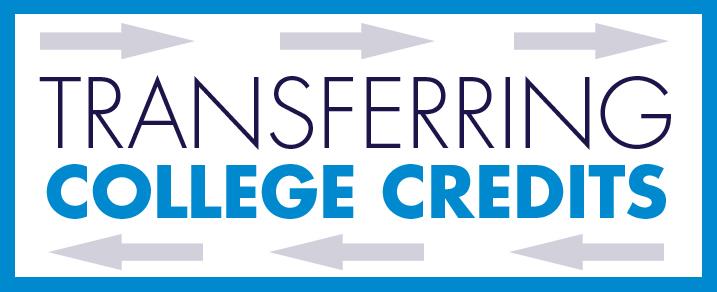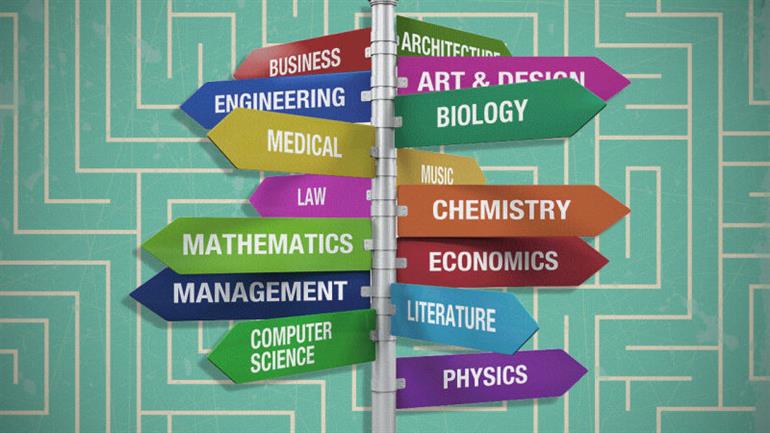
After the evergreen School days, Students enter Universities for graduation. Behind many dreams from parents and others, a student goes through graduation. Statistical data suggests that only 41% out of the whole lot students who had applied for Graduation are able to complete it. But what really drives out others not to do so? Let us find out what are the factors that matters. On discussing about the factors affecting the graduation of students, we bring you some interesting news that are unexpected and unknown to many of us.
1. Working Overtime

Not all families are wealthier to support their children’s education. When High Schooling was pretty much challenging, University education demands more money. To pay University fee, students are required to work part time. But when their major role of a student is overshadowed by their roles at workplace, things worsen. Students work to pay their University fee and to carry over themselves. But, the real problem for students who work gets decoded here. They work over 25 to 30 hours in a week. When a student works apart from attending University for over 20 -25 hours max, his/her energy levels drop. They are most leaned towards working and their attention shifts from education to work. Many College drop outs when contacted shared their problems for not continuing their education. On most of the occasion, unable to pay the University fee has been their primary difficulty. Reports display that over 40% students work over 25 hours a week. In the process these students lack grade points which determine their success in education. When their grade points go down below 3.0, their chances of completing Graduation seems to get delayed. Robert Kelchen, Professor of Higher Education at Seton Hall says “Students who are worried about debt sometimes work more and then reduce their course load. By working instead of studying they may find it more difficult to graduate on time”. Kelchen also proved a point that Income based repayment for students which was introduced by President Obama permit students to manage their debt.
2. Credits? Take 15.

It is a misconception to get relaxed when you are done with 12 Credits, when the actual lead requires you to obtain at least 15 Credits. Does it sound odd? Get along with the math again. The actual 150 Credits for gaining the graduation requires you to obtain a minimum 15 credits a semester. When you are as low as less than 15 or a 12, you end up on a deficit. It is a proven delusion that 12 Credits do the job while you have to gain 15 if you gotta reach the distance without worry. Assistant Vice President for Academic Affairs, Rebecca Torstrick, said “It shouldn’t really surprise us, but it is remarkable how many students simply aren’t made awry of what they need to do to graduate on time.” Indiana University introduced a new idea, offering tuitions for students and they are eligible to take up 18 credits for the price of 12. University of Hawaii introduced a campaign named as “15 to finish”. It is aimed at preparing students to make them eligible for attaining graduation. Eventually to make every student reach 15 Credits.
3. Transferring

In most cases, many students take over four years for finishing their graduation. There is an alternate scenario that requires to be noticed. When some sector of the students find it difficult to obtain the fixed 120 credits, many get 150 and some over 155. Students of the regional state colleges in New Mexico graduate with an average credits rating of 155. There is a certain regulation difficulty in transferring Credits from One University to the other. Some Colleges and Universities accept a Student’s credit ratings obtained. But reportedly 40% of the Students during transfer are not recognized with the Credit ratings that they’ve obtained from the previous institution. The decision obviously remains with the department of concerned study. But internal chaos are always on within Universities. For instance, a four year old college may not accept credits from other university. Professors form the authorized members to decide on whether to award the existing credits, withheld or to scrutinize it. It is mandatory for any student in the verge of transfer from one Institution to the other to confirm from the authorities about the status of their credits obtained from the previous institutions.
4. The Problem of Choosing Major

There are lots of courses to choose. Students at times feel puzzled to choose one. But some are sure to choose their target among the lot. Waiting for the fall to get started make things worse. Students are made to choose their selection prior to admission process. Pushing students to reveal their choice of higher education is not advisable. Tom Sugar, President of Complete College America said, “We think what they want is flexibility, but actually they need flexibility”.
5. Reprieved of Social Life
Students slowly get disconnected from College life. They feel they aren’t part of the college community. Depression and isolation from Social activities affect students mentally. When students are affected mentally, their education hits a record low. Reports reveal, those who didn’t take active participation in Campus life, friend networks, clubs, sports and recreational activities are more likely to become a College drop out. Calista Damm, fresher from University of South Florida says, “It’s been really important to me and keeps me kind of sane when I go to my clubs”. Living-Learning communities have made it easier for students to get along. Making them get along with their peers through social activities and internal networks enhance their academic performance. A form of emotional support develops among the students.
6. Challenges to face

Challenges are always waiting to slow you down. The real victory is when Challenges are faced and milestones set. Students in this era learn more, work more and get exhausted more. Distractions are more and time is very little. Zulmaly Ramirez, Academic Advocate for First year Students at University of South Florida says “Many of our students did great in high school, but they come here and don’t realize that you can’t just study the night before for a test. They used to spend 80 percent of their academic time in class and 20 percent on homework.” Managing students to hold themselves better in the society is a means of developing them to shoulder responsibilities. In the process the students get well with the society, friends and others they face. Springfield College in Massachusetts expects students to take voluntary responsibilities. This way, the students would most probably be able to manage their time better. Marry Ann Coughlin, Associate Vice President for Academic Affairs Springfield says “We have found that you can’t just tell them that they’re on academic probation; you need to press the immediacy of the problem.” She added “Because it’s not worth it if they’re coming and treating us like a country club and enjoying the facilities, and not getting the academic benefits.”
Choose a training provider to learn IT courses
Java training | J2EE training | J2EE Jboss training | Apache JMeter trainingTake the next step towards your professional goals in Information Technology
Don't hesitate to talk with our course advisor right now
Receive a call
Contact NowMake a call
+1-732-338-7323Related blogs on General to learn more

About Microsoft Job Openings and Certification Pathway to Explore Job Vacancies
Explore exciting Microsoft job openings across the USA in fields like software engineering, data science, cybersecurity, and more. Enhance your career with specialized certifications and land top roles at Microsoft with Sulekha's expert courses.

What is Application Lifecycle Management (ALM)? A Comprehensive Overview
Application Lifecycle Management (ALM) is a comprehensive approach that oversees the entire lifecycle of an application, from initial planning and development to deployment and maintenance. By integrating processes, tools, and methodologies, ALM ensu

Introductory concepts of product development
Bringing innovative ideas starts with mastering product development concepts that bridge creativity and practicality.

Exploring the Learning Opportunities in USA
What are the different programs available for students?The United States offers a wide range of learning opportunities for International Students. There are Undergraduate and Graduate Programs. The U.S. has over 3000 accredited institutions offering

About Zscaler
Discover how Zscaler’s cloud-native, zero-trust security platform empowers businesses with scalable, efficient cybersecurity solutions and opens career paths in cloud security.

About High Point University
"Explore High Point University, North Carolina's premier liberal arts university, offering rigorous academics, innovative programs, and hands-on experiences for student success."

Top 8 high paying freelance jobs you can start today
"Explore the rise of remote work in IT and non-IT sectors, its impact on work-life balance, and high-paying freelance opportunities such as web development, graphic design, and virtual assistance."

How Sulekha IT Services Can Help You Upskill and Reskill
"Discover how Sulekha IT Services connects you with top IT courses to upskill and reskill, offering flexibility, quality training, and career-boosting opportunities in the USA and Canada."

What is financial accounting?
Learn about financial accounting, its importance, types, and role in decision-making, budgeting, compliance, and fraud prevention

Global Disruption: Microsoft's Outage Sends Shockwaves across Industries
In this blog we have discuss the Global Disruption: Microsoft's Outage Sends Shockwaves across Industries
Latest blogs on technology to explore

Understanding Artificial Intelligence: Hype, Reality, and the Road Ahead
Explore the reality of Artificial Intelligence (AI) — its impact, how it works, and its potential risks. Understand AI's benefits, challenges, and how to navigate its role in shaping industries and everyday life with expert training programs

How Much Do Healthcare Administrators Make?
Discover how much healthcare administrators make, the importance of healthcare, career opportunities, and potential job roles. Learn about salary ranges, career growth, and training programs with Sulekha to kickstart your healthcare administration jo

How to Gain the High-Income Skills Employers Are Looking For?
Discover top high-income skills like software development, data analysis, AI, and project management that employers seek. Learn key skills and growth opportunities to boost your career.

What Companies Expect from Product Managers in 2025: Skills, Tools, and Trends
Explore what companies expect from Product Managers in 2025, including essential skills, tools, certifications, and salary trends. Learn how to stay ahead in a rapidly evolving, tech-driven product management landscape.

Breaking Into AI Engineering: Skills, Salaries, and Demand in the US
Discover how to break into AI engineering with insights on essential skills, salary expectations, and rising demand in the US. Learn about career paths, certifications, and how to succeed in one of tech’s fastest-growing fields.

Cybersecurity Training: Powering Digital Defense
Explore top cybersecurity training programs in the USA to meet rising demand in digital defense. Learn about certifications, salaries, and career opportunities in this high-growth field.

Why Pursue Data Science Training?
Empower your career in a data-driven world. Learn why data science training is crucial for high-demand jobs, informed decisions, and staying ahead with essential skills.

What Does a Cybersecurity Analyst Do? 2025
Discover the vital role of a Cybersecurity Analyst in 2025, protecting organizations from evolving cyber threats through monitoring, threat assessment, and incident response. Learn about career paths, key skills, certifications, and why now is the be

Artificial intelligence in healthcare: Medical and Diagnosis field
Artificial intelligence in healthcare: Medical and Diagnosis field

iOS 18.5 Is Here: 7 Reasons You Should Update Right Now
In this blog, we shall discuss Apple releases iOS 18.5 with new features and bug fixes